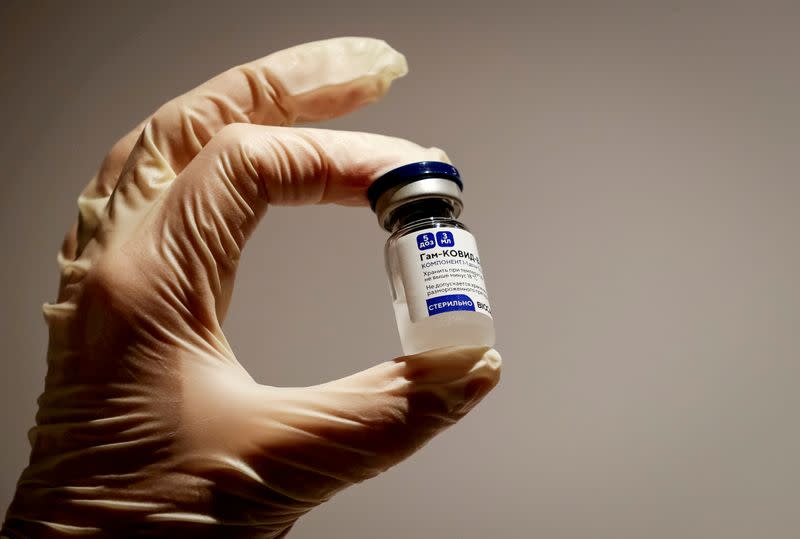MOSCOW (Reuters) – Nearly two-thirds of Russians do not want to receive the Russian Sputnik V vaccine and almost the same number believe the new coronavirus was created artificially as a biological weapon, an independent researcher said on Monday.
The Levada Center said that a survey conducted last month showed that 62% of people did not want to receive the vaccine produced domestically in Russia and that the highest level of reluctance was identified among 18- to 24-year-olds.
Most respondents cited side effects – which can include fever and fatigue – as the main reason for not wanting to be vaccinated.
The survey, which sampled 1,601 people in 50 regions, also found that 64% of people thought the new coronavirus was created as a biological weapon.
The origin of COVID-19 has been highly politicized, but most virologists and infectious disease specialists say it is more likely to have evolved naturally.
A World Health Organization (WHO) mission to China said last month that it was not investigating whether the virus escaped from a laboratory, which it considered highly unlikely.
The mission said its main hypotheses are that the virus originated in a bat, although there are several possible scenarios of how it passed to humans, possibly first infecting another species of animal.
The belief that the virus was created as a biological weapon is prevalent among Russians aged 40 to 54, with 71% of them having this opinion, the research revealed. Only 23% think the virus came naturally.
Russia, which has registered almost 4.3 million cases of coronavirus since the beginning of the pandemic, has approved three vaccines against COVID-19.
The country of about 145 million people launched a mass vaccination campaign with Sputnik V in December. On February 10, Health Minister Mikhail Murashko said more than two million Russians were vaccinated with at least the first dose of Sputnik V.
(Reporting by Gabrielle Tétrault-Farber and Tom Balmforth in Moscow; additional reporting by Kate Kelland in London; Editing by Ed Osmond)
